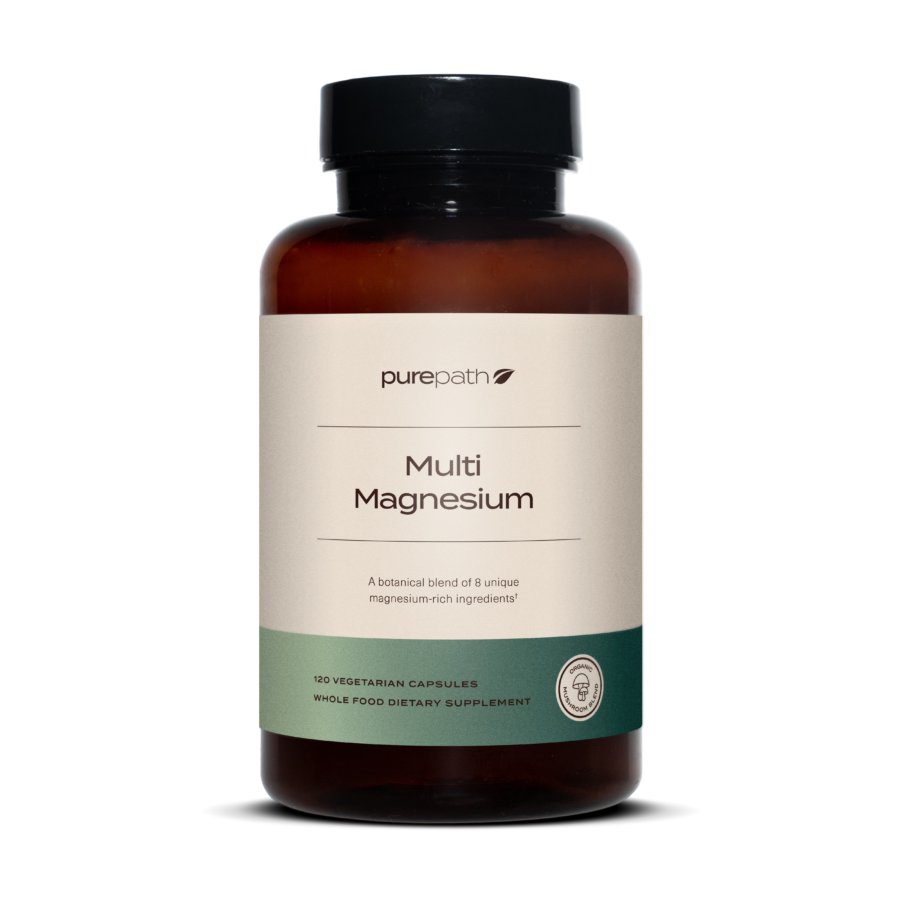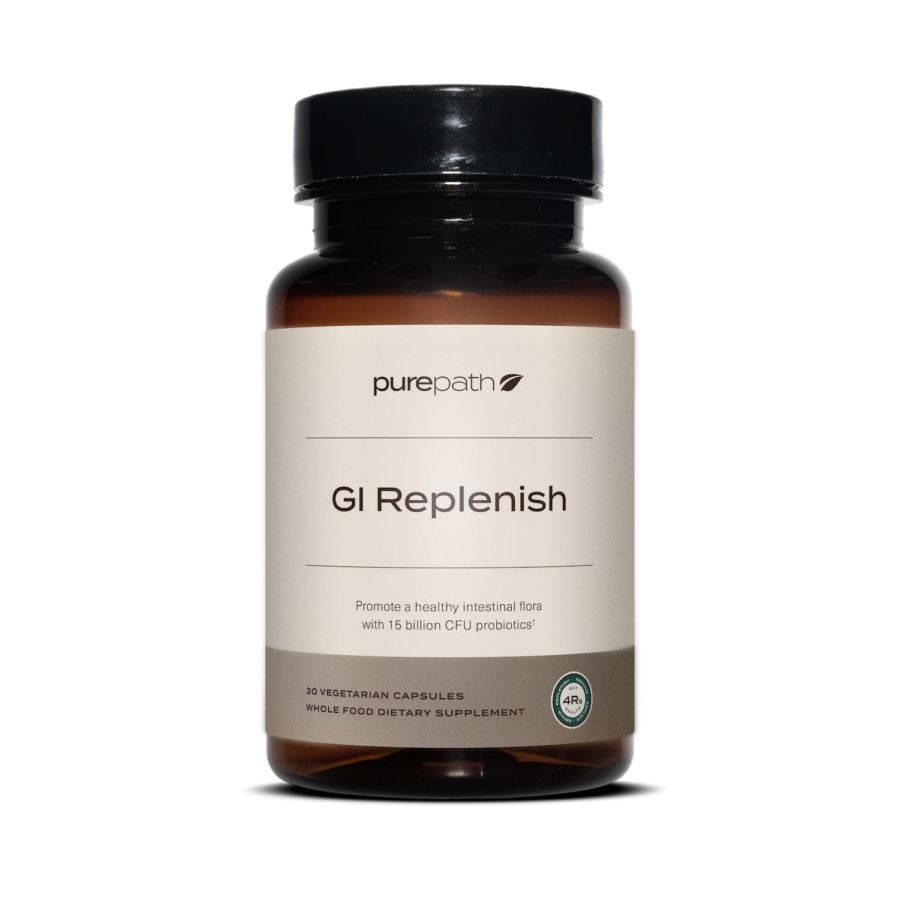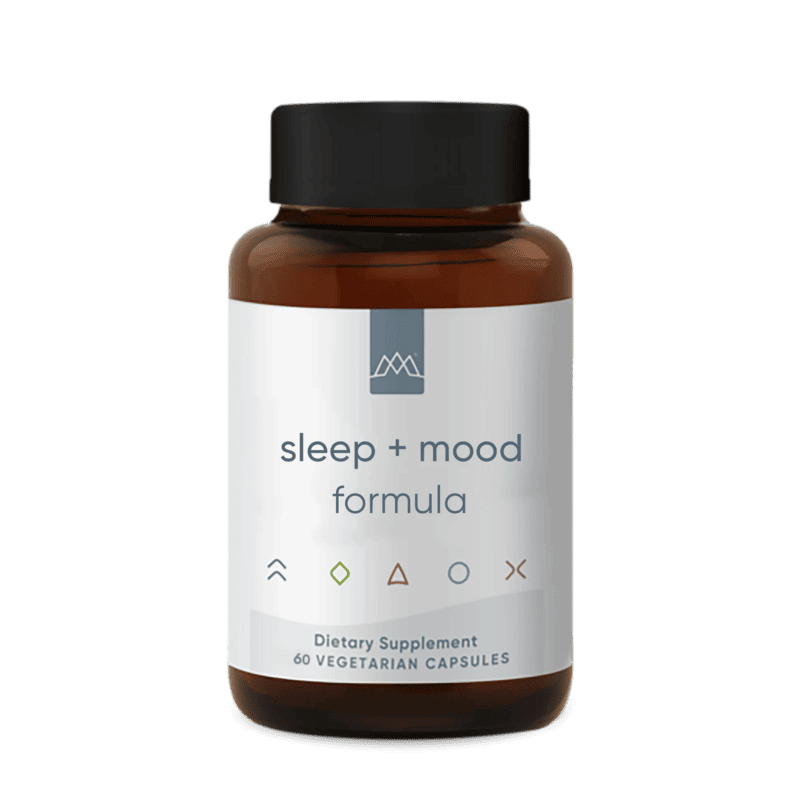- Restore Gut Health with a Hormone-Balancing Diet
- Take the Right Supplements to Balance Hormones and Restore Gut Health
- Balance Hormones Naturally and Restore Gut Health with the Right Lifestyle Factors
The condition of your gut impacts far more than you might realize. Researchers connect nearly every disease including obesity with gut health, or more specifically, the 100 trillion microbes or bacteria that live in your gut.
“When I say it all starts in your gut, I mean almost everything!” says Vincent Pedre, MD, in Happy Gut. “Headaches, migraines, allergies, autoimmunity, weight gain, acne, skin rashes, yeast infections, hormonal imbalances, fatigue, immune challenges, even the way you sense pain—they all relate to the condition and health of your gut.”
Those microbes — the trillions of flora or bacteria that live in your gut — serve a number of important functions, including producing certain vitamins and maintaining a healthy immune system.
Your gut will always harbor some bad bacteria, but you want to maintain the right balance of gut flora. Gut flora imbalances (a condition called dysbiosis) — when too much bad flora takes over — can lead to weight gain, increased risk for disease, and gut problems including leaky gut.
As its name implies, leaky gut means your intestinal lining cells (called tight junctions) become looser. Larger molecules slip through the gut wall that shouldn’t, creating an immune response and chronic inflammation that can lead to hormone imbalances including insulin resistance.
Leaky gut and other gut imbalances can impact other hormones including estrogen by disrupting estrobolome, the gut bacteria that metabolize estrogens. Estrogen imbalances could impact a woman’s risk of developing postmenopausal breast cancer.
Research also shows that gut health can impact central nervous system disorders including anxiety, depressive disorders, schizophrenia, and autism.
That makes sense considering your gut manufacturers about 90 percent of the body’s serotonin, a neurotransmitter or brain hormone that contributes to happiness and wellbeing.
“Being in charge of producing so much of this ‘happy chemical,’ along with about thirty other neurotransmitters, it’s no wonder the gut is central to feeling happy,” says Pedre.
Serotonin deficiencies do more than affect your mood; they can contribute to diseases including irritable bowel syndrome, cardiovascular disease, and osteoporosis. Certain bacteria within your gut are crucial to make optimal amounts of serotonin.
Pedre says the culprits that create these gut imbalances and disrupt hormones include chronic stress, antibiotics overuse, certain medications like non-steroidal anti-inflammatory drugs (NSAIDs), poor diet, and inadequate sleep.
These problems don’t happen in a vacuum. Many people have been prescribed antibiotics since children, suffer high levels of stress regularly, and don’t eat a nutrient-rich, whole foods diet. Healing your gut and balancing hormones naturally might require time, patience, and work with a healthcare professional. At the same time, these three strategies make a solid foundation to support gut health and restore hormone balance.
Restore Gut Health with a Hormone-Balancing Diet
Healing your gut and balancing hormones can start with your very next meal. Diet plays a significant role in shaping gut flora as well as protecting against leaky gut and other gut issues. Research shows the Western diet, high in inflammatory fats and sugar while being low in nutrient-dense foods, can adversely impact gut flora balance.
Even unlikely suspects could impact gut flora. Research shows that artificial sweeteners, for instance, could be unhealthier than regular sugar for the gut and overall health.
Instead, remove those offenders and add plenty of gut-healing, hormonal balancing foods. Here are some of the basics of a healthy, hormone-balancing diet.:
Anti-inflammatory foods
Chronic inflammation is a chief driver in many gut diseases including leaky gut, Crohn’s disease, and ulcerative colitis. Avoid inflammatory foods including vegetable oils and most processed foods including cookies, chips, “healthy” foods like agave-sweetened snacks (that aren’t really healthy), and pretty much any food in the center grocery aisles. Increase anti-inflammatory foods including wild-caught fish and non-starchy vegetables like spinach and green beans to normalize inflammation levels and heal your gut.
Foods rich in antioxidants
Oxidative stress, when damaging free radicals overpower your body’s antioxidant defenses, can damage the gut and lead to numerous diseases. Dietary polyphenols in colorful plant foods like berries can improve that antioxidant balance to prevent diseases such as cancer and cardiovascular disease while supporting gut health.
Foods high in fiber
Fiber travels to your large intestine, where your gut flora ferments that fiber for energy. In other words, dietary fiber provides the fuel your colon cells require to optimally function. Smart fiber options include leafy and cruciferous vegetables, berries, and raw nuts and seeds.
Nutrient-rich foods
Nutrient deficiencies, which are incredibly common in many Western diets, can adversely impact guthealth. Take magnesium — research shows that deficienc ies this mineral most of us don’t get enough of can adversely impact gut health and lead to depressive symptoms.
ies this mineral most of us don’t get enough of can adversely impact gut health and lead to depressive symptoms.
Rich in fermented and cultured foods
Fermented and cultured foods contain probiotics, live microorganisms that help balance your healthy gut flora. Yogurt is the most popular source, although sauerkraut, kimchi, and kombucha also provide probiotics.
Foods substantial in prebiotics
Prebiotics, a type of fiber that gut flora or probiotics feed on, include raw chicory root, Jerusalem artichoke, and raw dandelion greens. Cooked onion and asparagus also contain a small amount of prebiotics.
Take the Right Supplements to Balance Hormones and Restore Gut Health
Most of us don’t eat fermented and cultured foods, making probiotic supplements a smart alternative to support gut balance. Research shows probiotic supplements can help manage mood disorders including anxiety and depression, normalize inflammation, and help balance hormones.
Take cortisol or a supplement that regulates cortisol. Imbalances of this stress hormone can lead to numerous problems including insulin resistance. Research shows probiotic supplements can decrease cortisol and help you better manage stress.
Probiotics for a Healthy Gut
Along with a healthy diet, probiotics can also help balance glucose levels. One review of 17 randomized controlled trials found a probiotic could modestly improve regulating glycemic control or blood sugar. Left uncontrolled, these imbalances could lead to insulin resistance and chronic disorders including diabetes, obesity, and cardiovascular disease.
The health benefits of probiotics go far beyond your gut. They can optimize your immune health, improve cholesterol, and help prevent diseases including cancer. One randomized placebo-controlled trial gave 60 overweight healthy adults probiotics. After supplementing with probiotics, they had improved health markers including reduced triglycerides and inflammatory markers as well as an overall more favorable lipid profile.
Probiotic supplements aren’t all created equal. To choose the best probiotic, consider the following criteria: 
-
- Billions of organisms: The best probiotic contains billions (not millions) of microorganisms in several species including Lactobacillus and Bifidobacterium. One study found Lactobacillus could promote weight loss for people eating medium or low intakes of complex carbohydrates. Researchers found low levels of oral Lactobacillus could increase weight gain.
- Quality supplements: Probiotics have numerous barriers to cross before they arrive in your gut to optimize flora levels. Manufacturing, shelf life, and stability as probiotics move through the gastrointestinal tract can all impact that delivery. Probiotics are living creatures, and sitting on drugstore shelves for months or years mean very few of these organisms survive.
- A prebiotic-probiotic combination: To maintain optimal levels of gut flora, you want to enhance probiotics (which are living organisms) while also providing them with the fuel to thrive on (prebiotics). Studies show enhancing probiotics with prebiotics could complement and enhance their activity.
- Additional gut-supporting nutrients: Among its benefits, vitamin D — actually a hormone, not a vitamin — can support immune function, reduce inflammation, and protect the gut wall against problems such as leaky gut. The ideal supplement, then, contains the right blend of probiotics, prebiotics, and vitamin D.
Balance Hormones Naturally and Restore Gut Health with the Right Lifestyle Factors
Lifestyle factors can also impact the health of your gut and hormones. Among them include:
Sleep
Research shows a connection between sleep levels, gut flora balances, and cognitive function. Aim for eight hours of quality, uninterrupted sleep nightly, and consider a sleep supplement if you have trouble falling or staying asleep.
Exercise
Studies show consistent exercise can benefit gut flora species, diversity, and overall development of healthy bacteria. The Centers for Disease Control and Prevention recommends at least 150 minutes of moderate-intensity exercise weekly or 75 minutes of vigorous-intensity aerobic activity weekly. No matter your current level of exercise, follow our steps to help you develop and sustain the right exercise plan.
Stress management
“Research shows the stress response can alter the natural balance of healthy bacteria in your gut, causing the gut ecology to shift in favor of a more hostile group of bacteria,” says Pedre. Find something that helps you de-stress, whether that involves yoga, meditation, deep breathing, or unwinding with friends.
Nutrient support and chiropractic adjustments
Some people with leaky gut and other gut conditions require additional nutrient support. Research shows chiropractic care can provide that support for gut-related conditions including gastroesophageal reflux disease (GERD), colitis, and constipation. A chiropractor can also create a customized protocol for your condition. Find a Chiropractor near you!
Gut health and hormonal balance can be complex. If you suspect an imbalance that impacts hormones or other health parameters, talk to your healthcare professional about what symptoms you suffer from. They can test to determine underlying causes and develop strategies to heal those hormonal imbalances.




